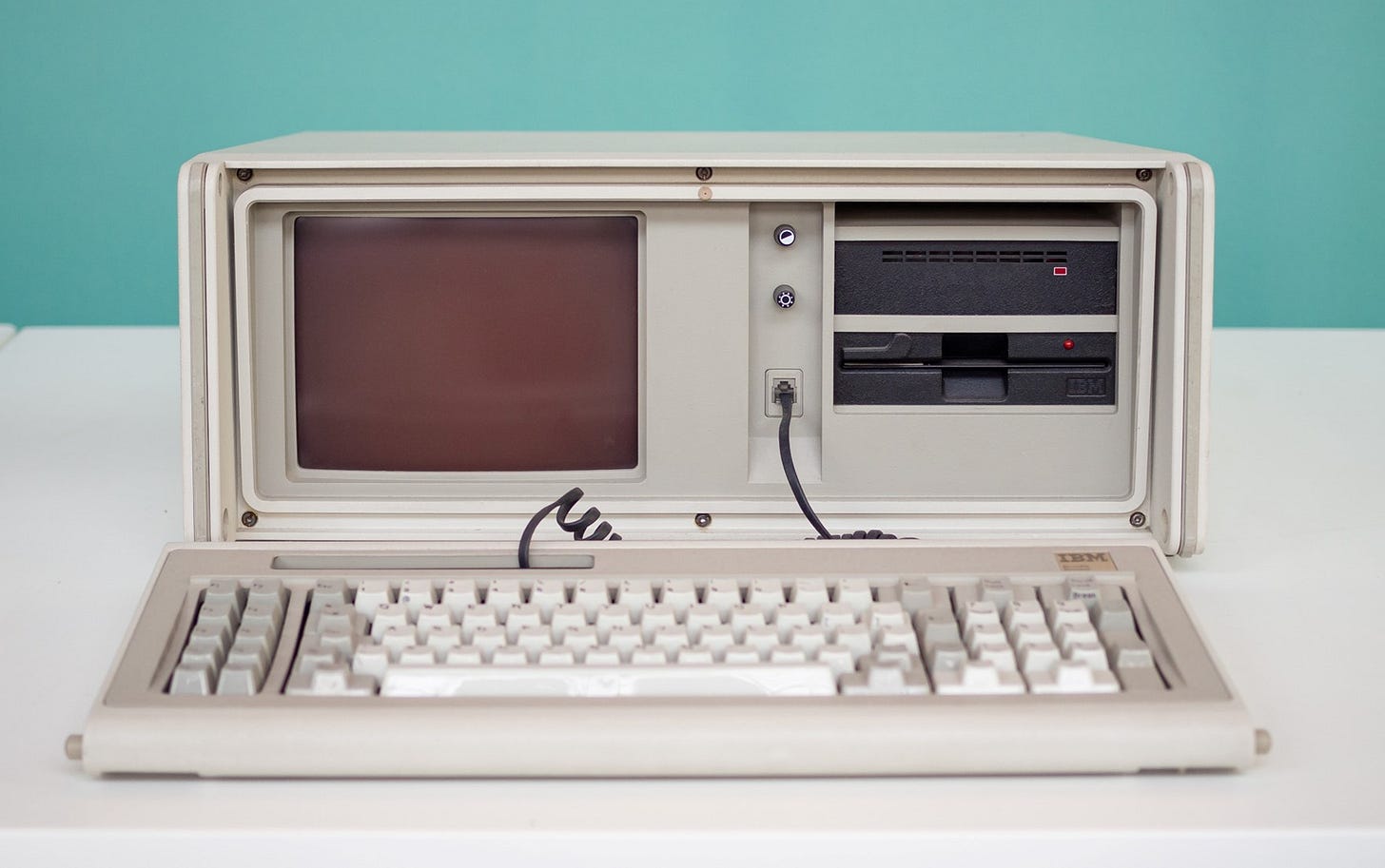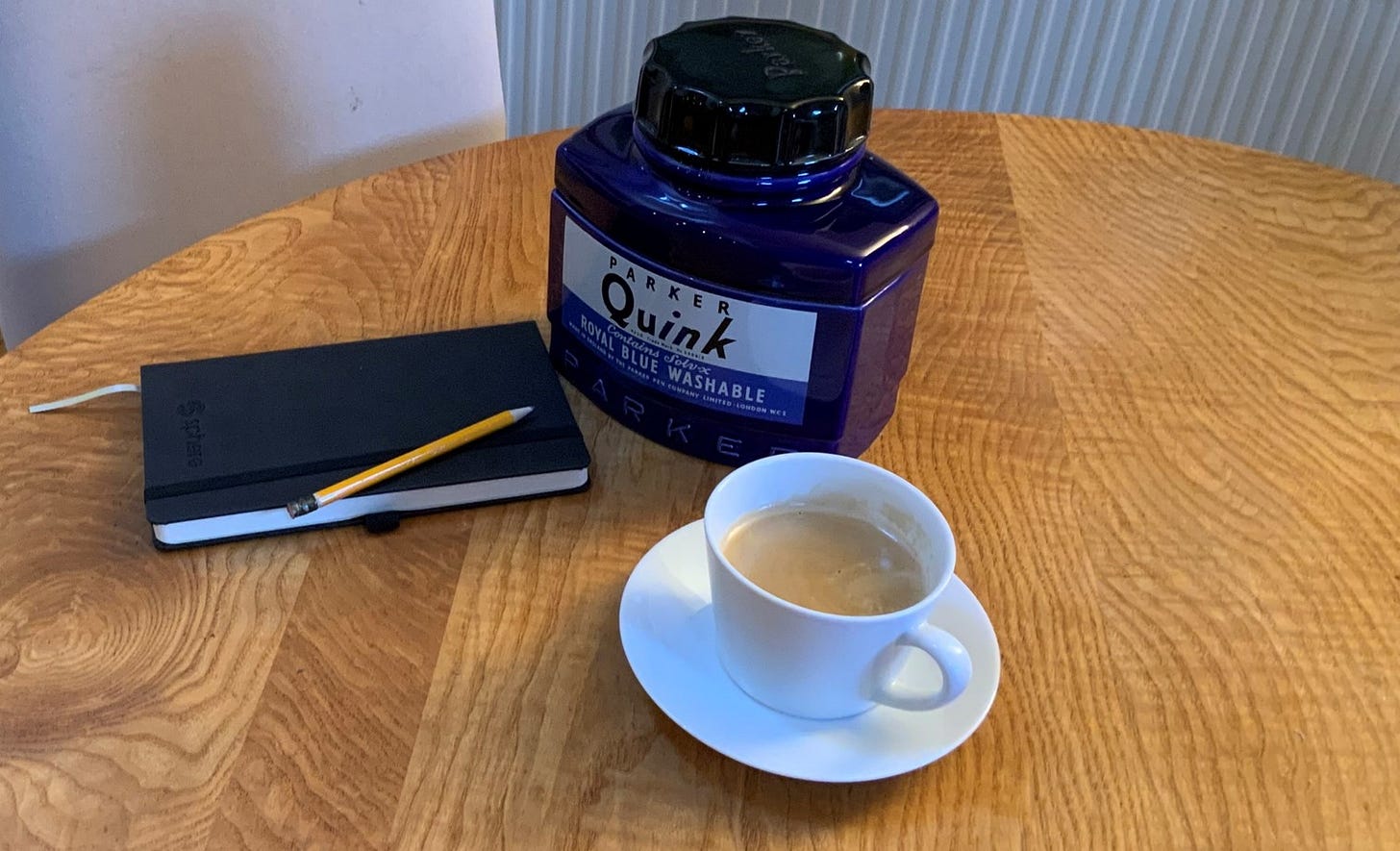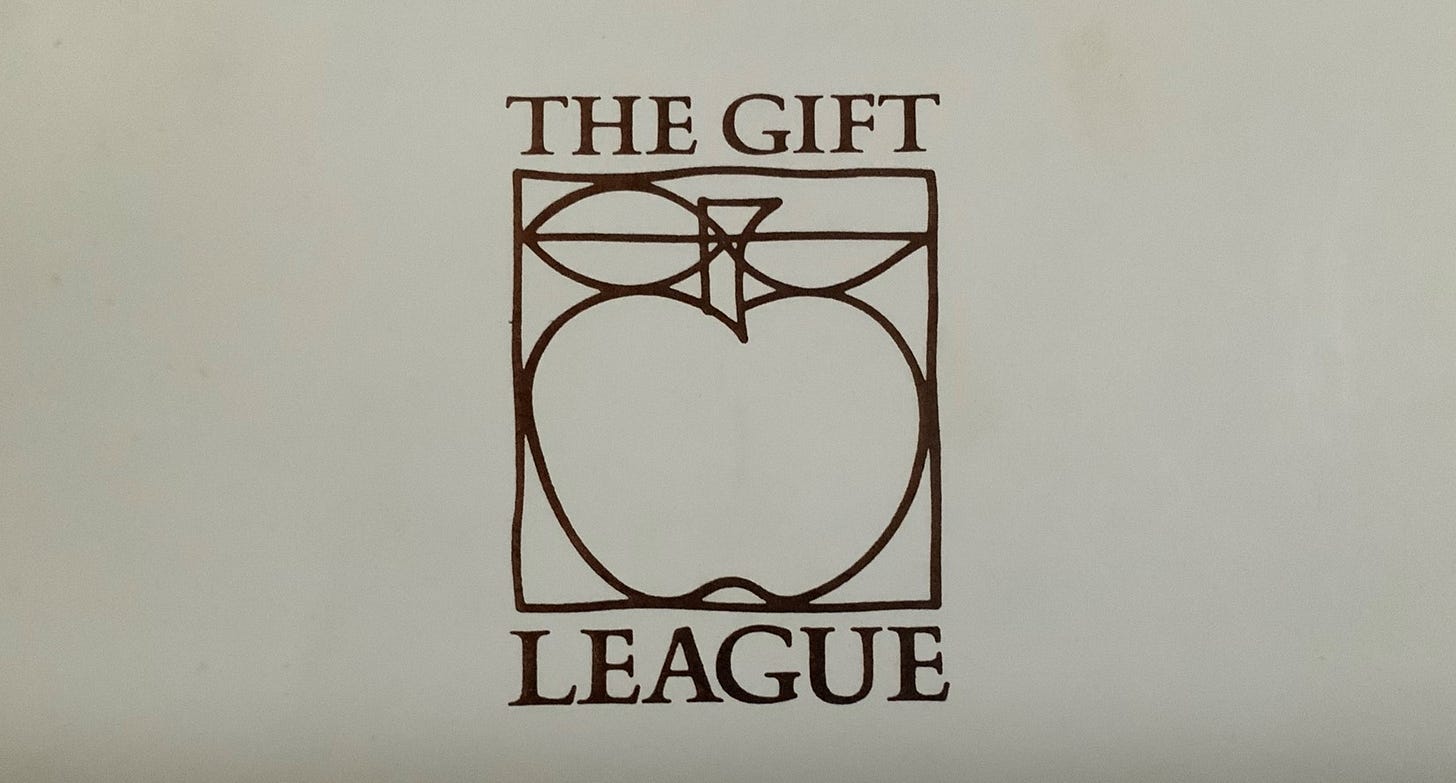Fragment 36: The Life & Times of a Social Experiment
The times they are (very much) a'changing. But how far into the future are we able to see?
It’s 1985, early in the new age of digital technological wonders, and John Doff and I decide that our new company, Write Solutions, should be New Tech Powered right from the start. So we acquire two IBM Portable Personal Computer 5155 model 68 machines. (See image above, from Shutterstock.)
Boy, this was living! The facility to view one’s words in glorious amber on a five and a quarter inch (that’s a whopping 13.3 cm) screen! The joy of having 256 KB of memory held on 5.25 inch disks. Hell, 256 KB … that’s enough to store as many as 5,000 words! Even the opportunity, should one choose, to heft one of these wonders of the world into a client meeting … which is something we never did because, weighing in at 30 pounds (13.6 kilos) apiece, they were more ‘luggable’ than portable. And, technical leadership or not, a dislocated shoulder wasn’t going to help anyone take over the world.
Even so, though these machines were primitive by today’s standards, there was talk about how futuristic it all was. I recall a conversation with one of our friends, Margaret Williams (her company, MJW Productions, would later create the original Three Tenors film with Carreras, Domingo and Pavarotti), discussing whether or not stuff written on a computer would end up being more formulaic than working with pen or typewriter and paper.
Maybe that’s why, when choosing a gift to wish us well with the new company, Margaret chose a desk tidy cunningly disguised as a giant ink bottle?
The point is, before a technology comes along and, even then, before it matures, it is damned hard to work out what the end results will likely be. Self-evidently, at those early stages, there are no precedents.
One of my favourite evidences of this observation comes from a chap called Adam Singer in a speech he gave at a Financial Times conference in 19991. At the time, Adam was chairman and CEO of Flextech, a leader in the proliferation of TV channels via cable - which is to say, he knew whereof he spoke. This particularly struck a chord with me:
[A] shift in technology reveals companies that were once sprightly as middle-aged. You can see it in Amazon’s seizure of a sector that should have been Barnes and Noble’s … [My emphasis]
See? An excellent point but a tad blindsided by a development that was atomizing the everything-in-its-proper-product-vertical logic of the electro-mechanical age. You can see this particularly from Adam’s next words: when he addresses change exclusively within a product vertical, he finds it entirely explicable:
… and if ITV2 had been grabbing satellite, instead of defending the network, there would have been no Sky or Flextech.
As it happens, Adam, one of the most intelligent people I have ever met, is an influential character in this whole story. Prior to our setting up Write Solutions, John Doff had already worked with Adam Singer, and Flextech was to become a client of ours for the next few years.
So, there we were, ready to set the world alight writing great brochures and scripts and white papers and thinkpieces and future-scenarios and any other long-form literature that client companies might require.
However, before expanding on that (in a future post) I’m going to continue, here, to explore the theme of ‘Guess the Future’. Why? Because, with hindsight, I can now see that it became something of an obsession with me and I didn’t prove to be terribly good at it.
For every Jeff Bezos or Elon Musk I’d guess there are a few gazillion chumps, like me, who are excited by the prospect of the future, and investigate numerous ways to leverage the opportunities that are presented, but ultimately fail in the attempts.
Actually, that’s not quite right: the resulting sense of it all is not one of ‘miserableness’ or ‘failure’. If I had my time over again, my guess is that I’d do the same things and probably make the same mistakes.
In an earlier fragment I mentioned that ad man Mike Gold had introduced me to a couple, Cliff Prichard and Pat Russell. Back in the International Design Associates days, my team and I gave them office space and worked with them on their brainchild … a thing called The Gift League.
The work included the design of the logo and other brand elements and, subsequently, numerous communications pieces … all resulting in a long-term friendship.
So, what was The Gift League?
Looking back, I think it fair to describe it as a kind of proto-Amazon. No disrespect to Mr Bezos but, with hindsight, I think it fair to make that claim. After all, it wasn’t until a decade later that Jeff Bezos launched Amazon.
The Gift League had actually been founded in, I think, 1981. It envisioned a world where people could buy and distribute a wide range of products and services, as gifts.
Aha, this brings us straight back to that conundrum of the shift from supply chain to network. What seems so blindingly obvious after the epochal shift (electro-mechanical age to digital age) seemed astonishingly opaque before it.
A gift can, of course, be bought by a person for him or herself but, so far as I remember, we were never able to make that final mental leap.
To make the point, here are a few snippets from a 1985 proposal document from The Gift League to the British Post Office:
The market concerned is the gift market: that is to say, any consumer who, for whatever reason, has to buy a gift for any other person, at any time.3
You see? Had we been able to go just that one step further we might have seen the ultimate opportunity … anybody buying anything in any circumstance. But we didn’t. We were so straitjacketed by established practice that the thinking was expressed in the only terms we could understand - a supply chain serving a product vertical.
So we ended up with a heck of a lot of explication of markets and competitors and so on. Here, for example, is how the addressable market is described:
The market is:-
- vast
- composed of every constituent of age, sex, socio-economic group and ethnic group: i.e. the total population of the UK.
- virtually non-price-sensitive.
- is under great stress when making the purchasing decision (i.e. the choice of a gift is a stress purchase)4
And, under the heading ‘Direct Competition’, there is a list, as below, with the advantages and disadvantages of each:
Interflora
Departmental Stores
Specialist Bookshops
Gift Vouchers
I suppose our myopia in not being able to see beyond the structures and supply chain options of the time is understandable because, in 1985, the internet was not as yet a thing. It really was a different world.
Ultimately, The Gift League did not take off. However, in 1989, a company called Red Letter Days launched and created an ongoing business that is what The Gift League should have been. Oh, well!
But none of this alters the fact that, just another half dozen years on, Jeff Bezos was able to see the future. By July 1994 he was able to fling open the doors of his garage in Bellevue, Washington to reveal Amazon - the universal store, a pure expression of a product-vertical-smashing, network-leveraging enterprise in action. Proof that the digital age really had arrived.
The key point of all this is, of course, one of timing. Timing, as the actress told the bishop, is everything.
Looking back, I really was a bit dim when it came to envisioning where things were headed. Not only did I not see how The Gift League might better position itself to really take advantage of the shifting landscape, but I also don’t seem to have learned very much from a real, visionary example right under my nose.
Yes, one of the clients that Write Solutions gained was the UK arm of a company called CACI where, at the time, the managing director was a chap called Clive Humby and the head of marketing, Edwina Dunn.
That’s the self-same Humby and Dunn who were subsequently to form DunnHumby Associates and go on to revolutionize customer relationship management with the Tesco Clubcard and some other leading-edge developments.
In 1986, I even wrote much of the brochure copy for what I believe might have been the very first customer relationship management (CRM) system, developed by Clive. Mind you, back then we called it Database Management. The product name was MarketMaster.
And, still, I didn’t ‘get’ the full implications of what all of this meant for humanity. Not least, I suggest, it’s a good reason for all of us to realize just how extraordinary are the minds and achievements of, among others, people like Jeff Bezos, Eric Schmidt (formerly at Google), Peter Thiel, Larry Ellison (Oracle), not forgetting the late Steve Jobs and the thankfully still very much alive Elon Musk.
Thanks for reading.
Speech by Adam Singer on Wednesday 3 March 1999 at the Financial Times conference on New Media and Broadcasting: “Should Platform Owners Also Be Content Providers?”
One of the leading UK broadcast television channels.
Report on The Gift League / Post Office proposed operation as at June 1985. The Gift League.
The Gift League. Ibid.







I am reminded by your Fragment, of the time I looked into the future. I was asked to give a talk at a senior European manager's meeting on where the culture of the computer industry lay. They all expected me to tell them that the future was the next family of the mainframe. Instead, I drew a map with mainframes in the top corner, many, as yet unknow, computers in the bottom corner and "content" filling the rest of the map. I said the future belonged to companies that owned and transported content. There was a stunned silence. My manager stepped onto the stage, applauding and apologising that we had run out of time. As he led me off, he said, "That was a career-limiting speech". The company was IBM ( look it up ) and I was alluding to companies like Amazon, Google, Microsoft etc. I left IBM within a year.